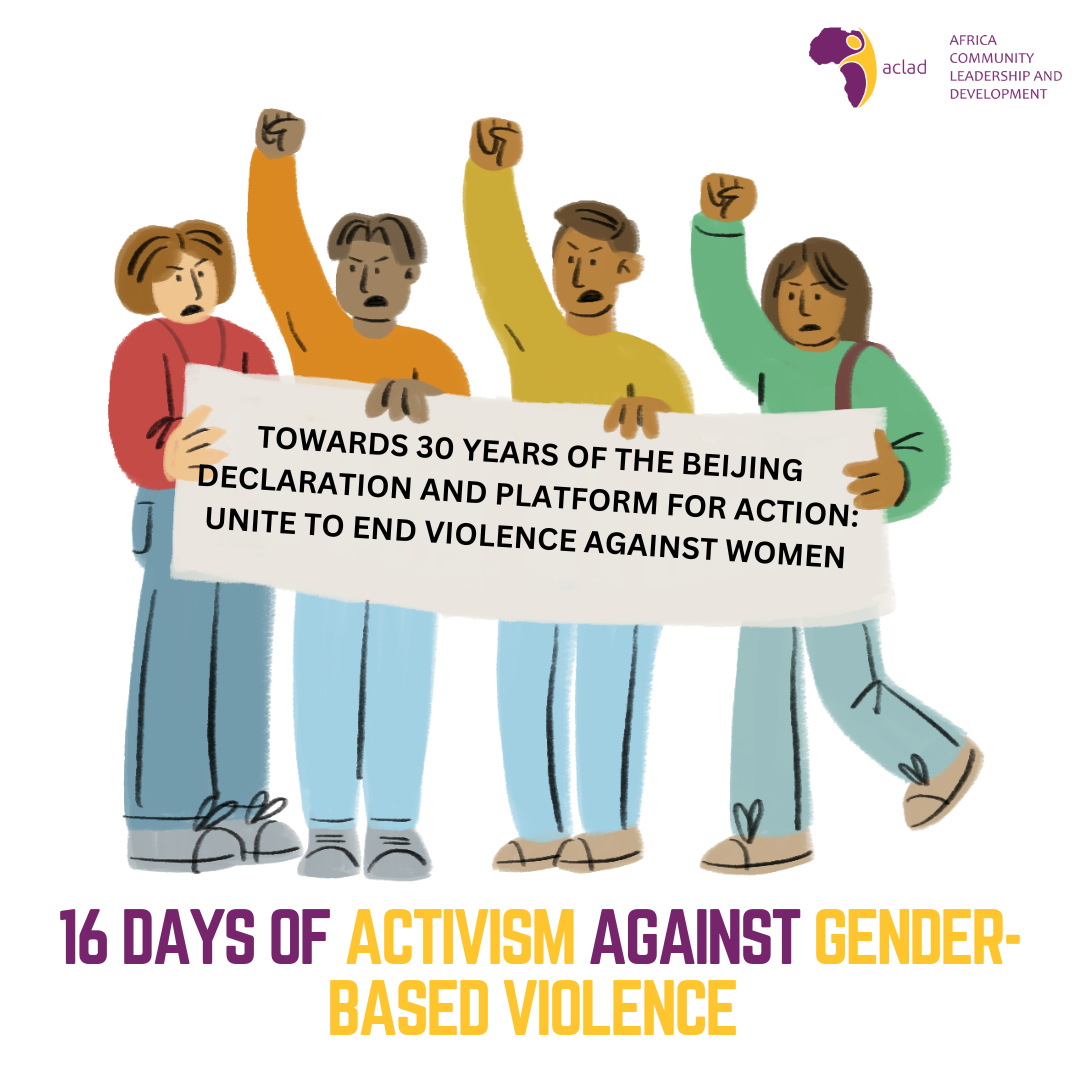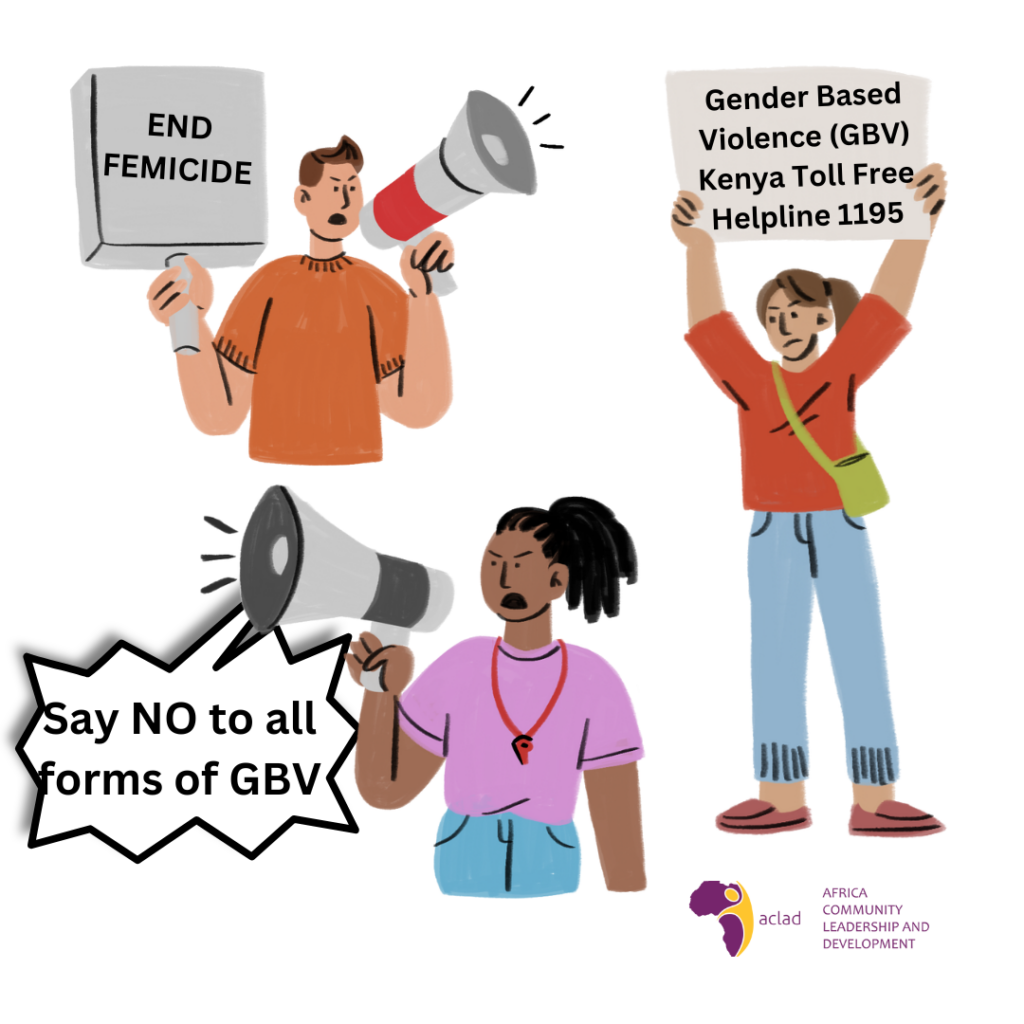16 Days of Activism: Standing Against Gender-Based Violence

The 16 Days of Activism against Gender-Based Violence is an annual international civil society led campaign that commences on 25 November – International Day for the Elimination of Violence against Women, and ends on 10 December – Human Rights Day, highlighting that violence against women is the most persistent breach of human rights worldwide. It’s a global campaign aimed at raising awareness and taking action to end violence against women and girls first because they are the most affected, then to boys and men because men are also beaten but rarely speak up. While the movement resonates worldwide, its significance in African and Kenyan contexts is profound, as communities grapple with the deeply entrenched issue of gender-based violence (GBV).
Why do these 16 Days matter?
Gender-based violence is not just a women’s issue—it’s a societal issue. In Kenya, statistics paint a grim picture. According to a report by the Kenya National Bureau of Statistics in 2020, over 45% of women and girls aged between 15 and 49 have experienced physical or sexual violence at least once in their lives. Beyond the numbers are untold stories of pain, resilience, and survival.
These 16 days serve as a call to action for governments, civil society, communities and individuals to break the silence, challenge harmful norms and practices as well as advocate for safer spaces for women and girls. Some of the key issues in the African and Kenyan context that harm the women and girls include some traditional practices or cultural norms such as Female Genital Mutilation (FGM) and early marriages, which remain prevalent despite legal bans. These practices not only harm women physically but also strip them of their rights and opportunities. Economic dependence and inequality often forces women to remain in abusive relationships. However, empowering women through education and job opportunities can break this cycle. In addition, access to justice – from reporting gender-based violence to its pursuit – for survivors is often slow and the individuals stigmatized.

What Can You Do?
Activism doesn’t have to mean grand gestures. It starts with small, impactful actions such as:
- speaking out -use your voice to challenge harmful gender norms and attitudes. Engaging in conversations, whether at home, work, or on social media can create ripples of change.
- support survivors by listening without judgment, believe their stories, and guide them to professional help or avenues where they can seek legal redress, as appropriate.
- Engage communities by organizing or participating in community awareness programs that educate people about the impacts of GBV.
- Push for accountability from the government of the day as well as advocate for government policies that protect women and ensure the enforcement of laws against GBV.
Kenya has made strides in combating GBV through the 2022 Sexual Offenses Amendment Act and the establishment of gender desks at police stations are significant steps forward. However, these measures need widespread awareness and implementation to make a lasting impact.
Let’s be the change we want to see. Ending GBV isn’t just a 16-day event, it’s a conscious, continuous commitment. Let this campaign inspire us to stand together for a future where every woman and girl feels safe, valued, and respected. Change starts with me.
References
Kenya National Bureau of Statistics. (2020). Demographic and Health Survey.
UN Women. (2024). 16 Days of Activism Against Gender-Based Violence.
Amnesty International Kenya. (2022). Gender-Based Violence in Kenya: The Need for Action.
Catherine Muteithia
ACLAD Communications and Research Operations Officer
